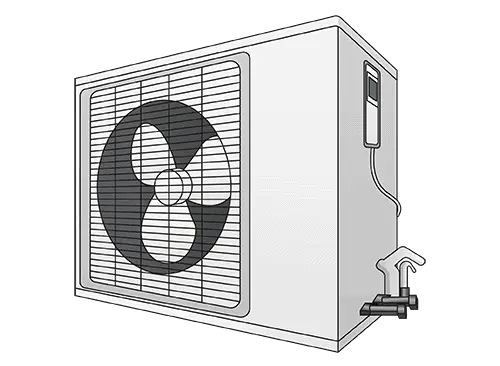

Like any other heating, ventilation, and cooling (HVAC) appliances, heat pumps are prone to various problems you should be aware of for easy diagnosis, troubleshooting, unit maintenance, repairs, or whole-unit replacements.
The unique characteristic of heat pumps – the ability to cool and heat spaces from the same device, sets them up for frequent problems. As much as you enjoy heating, cooling, and dehumidification, be ready to address the occasional heat pump problem whenever necessary.
This article will give you a detailed overview of common heat pump problems along with their causes, troubleshooting, diagnoses, and the solutions to get your heat pump running efficiently again.

Heat pumps usually develop complications with repeated use. Fortunately, some of these are easy to troubleshoot and correct on your own. Some require the intervention of a qualified HVAC technician, which pushes maintenance and repair costs up further.
Here are eight common heat pump problems you should be on the lookout for to ensure you use and maintain your unit accordingly for longevity even with regular use.
| Issue | Likely Means |
| Heat Pump Not Turning On | Pump may have power issues due to power outage, accidental switch-off, or tripped breakers. |
| Heat Pump Not Heating | Pump may be stuck in cooling mode, low on refrigerant, or has a broken reversing valve. |
| Heat Pump Won’t Cool | Pump may be stuck in heating mode, low on refrigerant, or has a broken reversing valve. |
| Heat Pump Constantly Runs | Pump may be low on refrigerant or too is mismatched for space to heat or cool. |
| Heat Pump Making Strange Noises | Pump may have loose components, clogged air passages, bearing problems, high refrigerant pressure, or a faulty starting capacitor. |
| Heat Pump Is Short Cycling | Pump may have clogged air filter, low on refrigerant, damaged compressor, or mismatched for the space. |
| Heat Pump Smelling Odd | Pump may have mildew or mold on evaporator coils or inside the air passages. |
| Outdoor Unit is Frozen | Pump may be unable to defrost properly, low on refrigerant, or has excess ice on the outdoor unit. |
Sometimes a heat pump may fail to turn on at all when you need it for heating or cooling.
It might seem like a small thing to happen, but it could simply mean that your unit has a small issue. Perhaps a bigger one. Like a total breakdown that necessitates whole system replacement.
You can easily tell this by looking around the home for other everyday electrical appliances. If they are off, too, then it’s probably a power loss issue.
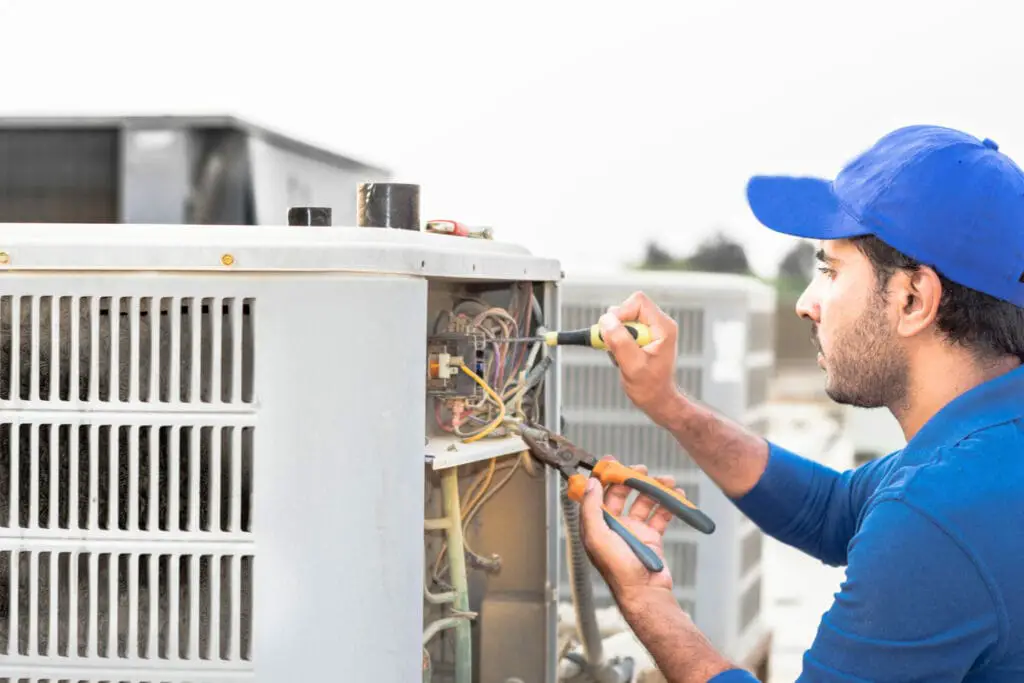
You should also check the heat pump’s two breakers to ensure that they are not tripped. If they are, flip them back on. The system should be on now. Another trip would mean an electrical fault, which an HVAC technician should repair.
There could also be miscommunication between the heat pump and the thermostat due to an electrical fault.
Depending on what is causing the issue, the troubleshooting solution may be a simple DIY process or one requiring a professional HVAC contractor to help.
Checking the home’s power supply, reset the thermostat, and flipping switches and breakers back on can all be done easily. However, you should call in a technician for a deeper thermostat or broken capacitor issues.
You may notice that your heat pump fails to heat your space when you want it to. It could be stuck in cooling mode even if the display indicates otherwise. Other times the system may be in the heating mode but still fail to heat as needed.
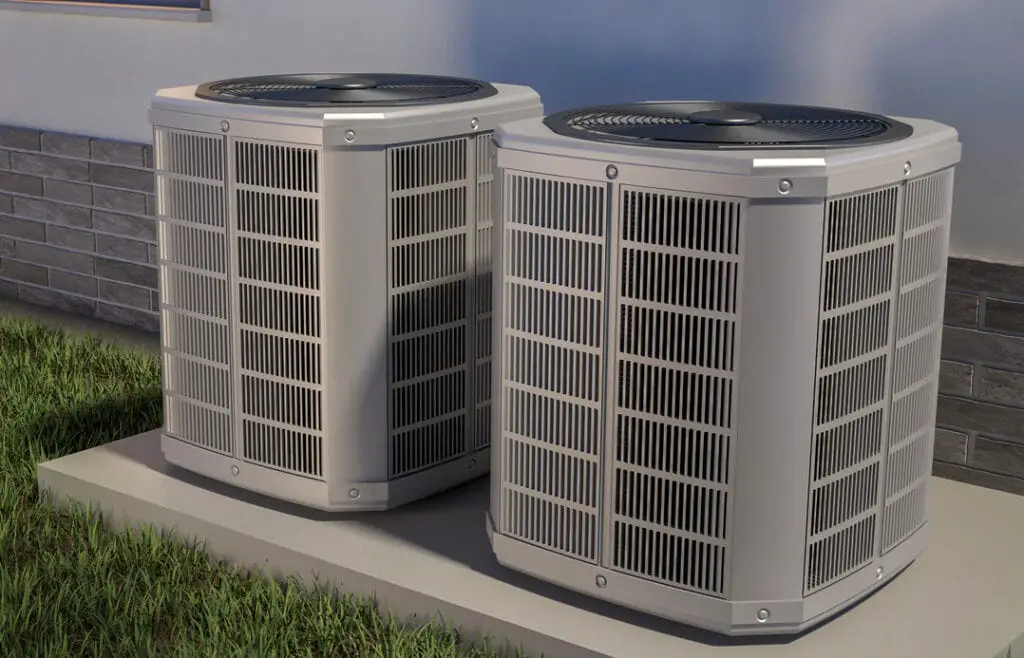
A heat pump might fail to cool your indoor space when you want it to. When this happens, the indoor temperature remains high even if the pump is still operating.
During the cooling failure period, the heat pump cannot take the heat from the indoor air in your home, business, or office to channel it outdoors.
Sometimes a heat pump runs all the time and doesn’t shut down. The phenomenon is quite common and could occur any time in winter or summer. Unless you force stop the pump or there is a power loss, the unit will remain running for a long time.
A mismatch between pump heating capacity and the volume of the space in your home: If the pump’s capacity does not match the amount of space in your home, the unit will have to stay on all the time to reach its goals.
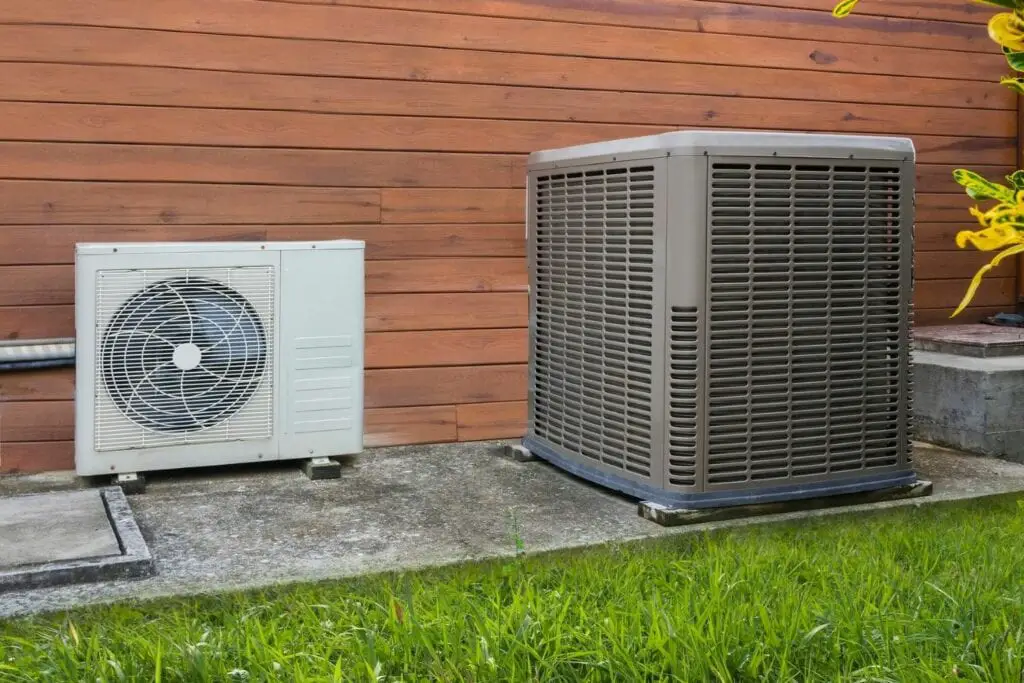
Typically, a heat pump will only produce a subtle humming sound when powering on or during operation. However, you may hear some strange noises like clanking, buzzing, whistling, squealing, or high-pitched screaming.

Short cycling refers to a situation where an electrical appliance goes into a series of on-and-off sessions due to some malfunctioning. When a heat pump is short cycling, it has trouble heating or cooling and cannot maintain the temperature you set for it.
The on-and-off habit can be a ‘survival mechanism’ the heat pump uses to avoid overworking or a looming total crush.
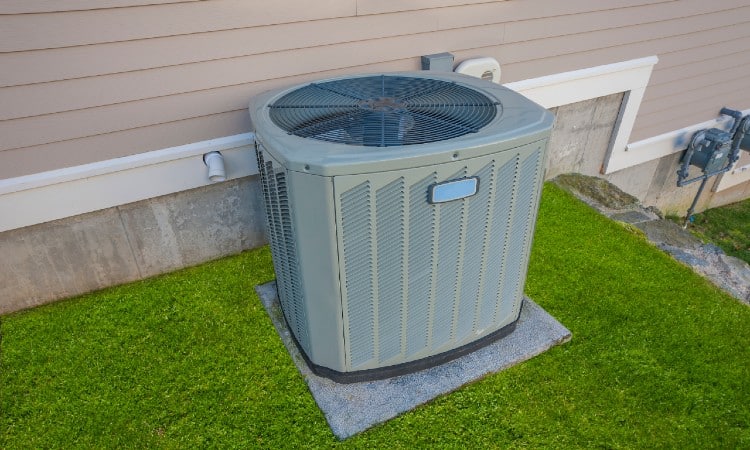
When the coolant level is too low, the system can’t run sustainably and efficiently. The unit has to keep going on and off as it attempts to reach a healthy equilibrium.
A faulty thermostat may also be the problem if the pump fails to reset to either heating or cooling after meeting its objective.
For example, if the pump heats the space to the set temperature and doesn’t readjust to cooling, miscommunication between it and the thermostat will cause it to keep shutting off to avoid overworking.
As the device tries to protect itself or some crucial components from self-destruction, it tends to shut off completely or go into repeat on-and-off cycles.
When off, the heat pump cools down and can thereafter work again for some time until it overheats once again and has to force-stop itself for another round of internal cooling.
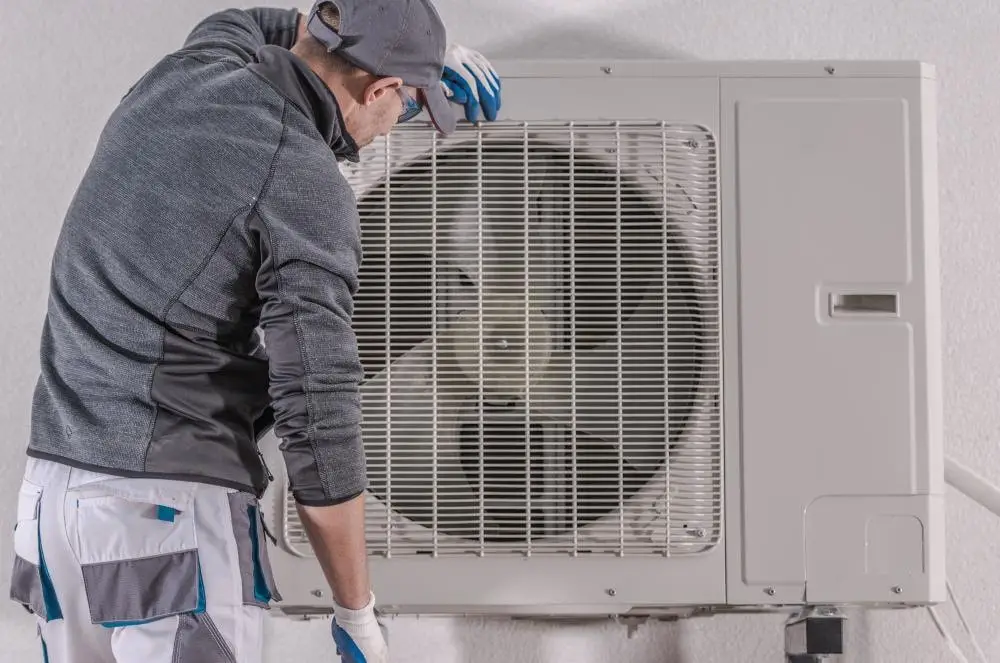
When it is broken, the refrigerant circulation will be affected, and the heat pump will keep shutting off and restarting as it struggles to heat or cool.
Although it is rare, sometimes heat pumps produce a bad odor and fill the home with an odd smell you can’t withstand, especially if it is persistent.
It could be the smell of rotten eggs. But most smelling heat pumps exhibit the “dirty sock syndrome” since they produce the odor of damp socks. Sometimes it could be a burning odor – the kind that happens when an electrical device overheats or burns.
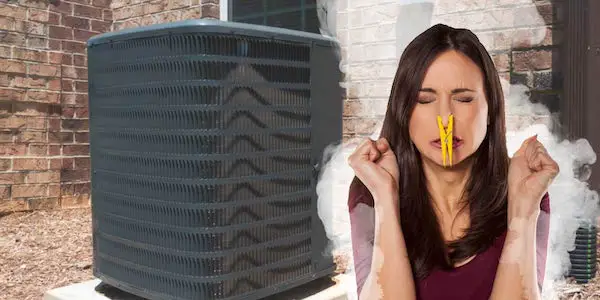
A frozen outdoor unit is another common heat pump problem. It occurs any season but is more common in the winter when there is plenty of snow or ice, which causes the unit to cool down excessively and freeze.
Impaired defrosting might be caused by a broken reversing valve or faulty controllers and sensors.
As noted earlier, you can either do troubleshooting or replacements of some parts or the entire heat pump.
You might want to do basic troubleshooting and diagnosis in any (or a combination) of the situations highlighted below:
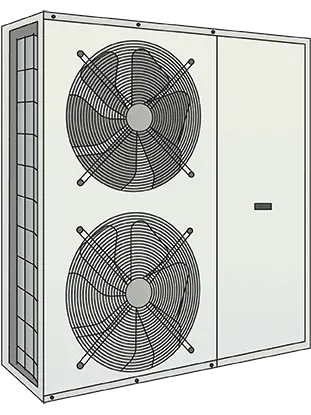
Be sure to replace your heat pump when you are in any (or a combination) of the situations below.
Despite their unique functionality for cooling, heating, and dehumidification using the same device, heat pumps are vulnerable to different problems that reduce their efficiency and necessitate regular repairs and part replacements or even changing the entire system.
The good news is that you can easily diagnose and solve most heat pump problems with the help of the user’s manual or information from the Internet. However, some issues are complex to handle and always require the intervention of an expert HVAC contractor.
Heat pumps are highly intriguing HVAC appliances because of their versatility. But as we noted earlier, it’s this same versatility that sets them on the path of developing different problems. Here are some frequently asked questions to help you understand heat pumps better.
How Do You Know If You Have a Bad Heat Pump?If you notice any or most of the problems we have discussed here, you most likely have a bad heat pump. It could be a failure to cool, heat, or turn on. In other cases, the system may run constantly, produce strange noises, or keep going on and off frequently.
The inefficient performance also indicates that you may be using a bad heat pump that requires routine maintenance, repair, or replacement.
Do Heat Pumps Have a Reset Button?Not all heat pumps have a reset button. Some old models have a manual reset switch for ‘rebooting’ the system when required. Most modern heat pumps have a reset button for the same purpose, and its color or location may differ from model to model.
How Do I Know If My Heat Pump is Low on Refrigerant?The many issues that result from a low refrigerant charge level in a heat pump should be good signs towards this end. There’s no shortage of indicators from short cycling to bad odor to running without ceasing to freezing to not cooling and not heating.
You may also note some leaks or freon odor. If you suspect that the heat pump is leaking or low on refrigerant, it’s crucial to call in an HVAC professional to check the unit for leaks and do repairs or a refrigerant recharge accordingly.
How Long Does The Average Heat Pump Last?The average heat pump lasts 10-15 years of regular use. However, the duration could go as high as over 20 years if you maintain your unit well and allow it to go lazy at times you don’t need its service.
Here are some related guides we have that you may be interested in: